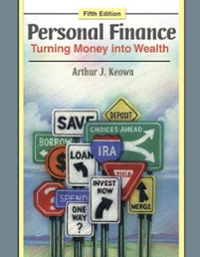Answered step by step
Verified Expert Solution
Question
1 Approved Answer
A stock has a required return of 13%; the risk-free rate is 5.5%; and the market risk premium is 6%. What is the stock's beta?
A stock has a required return of 13%; the risk-free rate is 5.5%; and the market risk premium is 6%.
- What is the stock's beta? Round your answer to two decimal places.
- If the market risk premium increased to 9%, what would happen to the stock's required rate of return? Assume that the risk-free rate and the beta remain unchanged.
- If the stock's beta is less than 1.0, then the change in required rate of return will be greater than the change in the market risk premium.
- If the stock's beta is greater than 1.0, then the change in required rate of return will be less than the change in the market risk premium.
- If the stock's beta is equal to 1.0, then the change in required rate of return will be greater than the change in the market risk premium.
- If the stock's beta is equal to 1.0, then the change in required rate of return will be less than the change in the market risk premium.
- If the stock's beta is greater than 1.0, then the change in required rate of return will be greater than the change in the market risk premium.
- New stock's required rate of return will be %. Round your answer to two decimal places
Step by Step Solution
There are 3 Steps involved in it
Step: 1

Get Instant Access to Expert-Tailored Solutions
See step-by-step solutions with expert insights and AI powered tools for academic success
Step: 2

Step: 3

Ace Your Homework with AI
Get the answers you need in no time with our AI-driven, step-by-step assistance
Get Started


